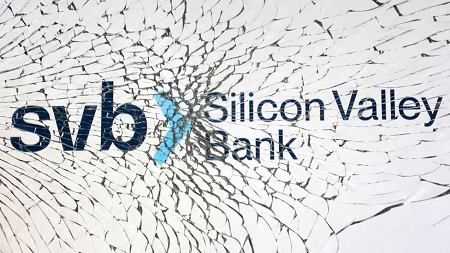Silicon Valley Bank (SVB), a significant financial institution that caters to venture-backed businesses in California, was closed down by the state’s financial regulators on March 10, 2023.
This incident is being described as the second-largest failure of a financial institution in US history, following a 48-hour bank run and a capital crisis. SVB is the first insured bank to collapse this year, marking a significant event in the financial sector.
The closure of SVB has created a ripple effect throughout the business community, particularly among venture-backed startups that relied on the bank’s services. This event has raised concerns among entrepreneurs who fear they will struggle to obtain funding for their businesses in the future.
The California Department of Financial Protection and Innovation ordered Silicon Valley Bank to cease operations and appointed the FDIC as the receiver to protect insured savings. However, no reason was given for the shutdown order, leaving many companies and individuals uncertain about the fate of their funds in the bank’s custody.
According to a report by the regulator, all insured depositors will have full access to their insured deposits by Monday morning, March 13, 2023. Uninsured depositors will receive an advance dividend payment within the next week and a receivership certificate for their uninsured funds balance. In addition, the FDIC may offer future dividend payments to uninsured depositors as it sells off Silicon Valley Bank’s assets.
Starting March 13, all 17 branches of Silicon Valley Bank in Massachusetts and California, including the main office, will be open to depositors. As of December 31, 2022, Silicon Valley Bank’s total assets were approximately $209.0 billion, while its total deposits were around $175.4 billion.
It is currently unclear how much the total uninsured deposits exceeded the insurance limitations. However, the FDIC will determine the precise amount of uninsured deposits once it receives additional information from the bank and its clients. Clients with accounts worth more than $250,000 are advised to contact the FDIC.
The fall of Silicon Valley Bank, one of the top 20 banks in the US in terms of total assets, was swift, occurring within 48 hours of management announcing a requirement of $2.25 billion in stock to sustain operations.
The bank had announced on March 8 that it was seeking more than $2 billion in additional capital after incurring a $1.8 billion loss on asset sales. All efforts to raise capital had failed, so SVB had shifted its focus to a possible sale. However, the sale was complicated by a rapid outflow of deposits.
The bank was well-known for providing financial services to certain entrepreneurial firms with a focus on cryptocurrencies.
If you would like to read more news articles like this, visit DeFi Planet and follow us on Twitter, LinkedIn, Facebook, Instagram and CoinMarketCap Community.
“Take control of your crypto portfolio with MARKETS PRO, DeFi Planet’s suite of analytics tools.”





















